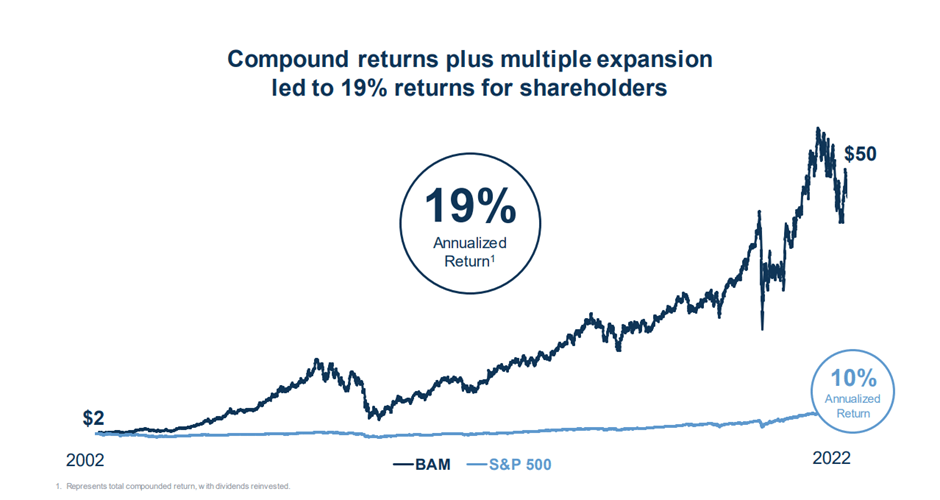Germany's Leadership In Europe: The New Chancellor's Challenge

Table of Contents
Economic Challenges and Germany's Role in the EU Economy
Germany's economic strength is a cornerstone of the EU's overall prosperity. As Europe's largest economy, Germany's performance significantly impacts the entire economic bloc. However, the current economic climate presents significant challenges to this leadership role. Inflation, coupled with the ongoing energy crisis stemming from the war in Ukraine, has created significant headwinds for German industry and, by extension, its European partners.
-
Impact of the energy crisis on German industry and its European partners: The soaring cost of energy has severely impacted German manufacturing, a sector vital to the EU's economic engine. This ripple effect threatens to destabilize supply chains and hinder economic growth across the continent. The search for alternative energy sources and diversification of energy supply are crucial for Germany’s continued economic strength and its influence within the EU economy.
-
The role of German economic policy in shaping EU-wide economic strategies: Germany's fiscal policies and economic decisions have a significant impact on the overall direction of the EU. The country's commitment to fiscal responsibility and its focus on export-oriented growth influence the development of EU-wide economic strategies. Finding a balance between national interests and collaborative EU-wide solutions is paramount to maintaining Germany's economic leadership in Europe.
-
Potential for economic reforms to strengthen Germany's position within the EU: Modernizing infrastructure, investing in green technologies, and fostering innovation are crucial for sustaining Germany's competitive edge and strengthening its position within the EU. Reforms focused on improving labor market flexibility and tackling demographic challenges are also vital for long-term economic stability and maintaining German economic leadership in Europe.
Geopolitical Landscape and Germany's Foreign Policy
Germany's foreign policy priorities are intrinsically linked to its role in maintaining European security and stability. The war in Ukraine has fundamentally altered the geopolitical landscape, forcing Germany to reassess its foreign policy approach and significantly increasing its involvement in European security. Balancing its historical ties with Russia while simultaneously strengthening its commitment to NATO and supporting Ukraine presents a complex challenge for Germany's leadership.
-
Balancing relations with Russia and other European nations: Navigating the complexities of maintaining a balanced relationship with Russia while upholding its commitment to European solidarity is a significant foreign policy challenge for Germany. This requires diplomatic skill and a strategic approach to ensure that relations with Russia don't overshadow or undermine Germany's commitment to its European partners.
-
Germany's role in NATO and its implications for European security: Germany's increased military spending and its enhanced role within NATO reflect a shift towards a more assertive security policy. This greater involvement in European security strengthens Germany's influence but also comes with the added responsibility of coordinating with other NATO members, particularly in response to emerging threats.
-
The challenges of coordinating foreign policy within the diverse EU framework: The diverse interests and priorities of EU member states make it challenging to formulate and implement a cohesive foreign policy. Germany's leadership requires the skill of bringing together a wide range of perspectives and building consensus on key foreign policy issues, particularly concerning the ongoing geopolitical instability. This is crucial for effective German leadership in Europe on a global scale.
Internal Political Challenges and Coalition Governance
Germany's coalition government adds a layer of complexity to the process of policymaking. Balancing the competing interests and priorities of multiple coalition partners requires skillful negotiation and compromise. This internal political dynamic inevitably affects Germany's ability to present a united front on the European stage.
-
The influence of different coalition partners on EU policy: Internal discussions and potential disagreements within the coalition can influence Germany's stance on key EU policies. Ensuring internal cohesion on crucial European issues is essential for maintaining Germany's influence and ability to drive decision-making processes within the EU.
-
Potential for internal disagreements to hinder effective leadership: Disagreements within the coalition government can lead to delays in decision-making and potentially weaken Germany's position in EU negotiations. Internal consensus building is crucial for projecting a strong and unified image on the European stage.
-
The need for strong internal consensus-building to maintain a unified front: Effective communication and compromise within the coalition are necessary to ensure that Germany presents a unified front on European issues. A lack of internal cohesion can undermine Germany's credibility and effectiveness as a leader in Europe.
Public Opinion and the Mandate for European Leadership
Public support is crucial for any government's ability to effectively lead on the European stage. Understanding German public opinion concerning the country's role in Europe is essential to evaluating the new Chancellor's mandate.
-
Public perception of the costs and benefits of European integration: Public attitudes toward European integration can be complex, with varying perceptions of the costs and benefits associated with deeper EU collaboration. Understanding these nuances is crucial for navigating public discourse and building support for European initiatives.
-
The influence of media narratives on public opinion: Media coverage and the framing of European issues can significantly shape public opinion. The new Chancellor needs to develop effective communication strategies to counter misinformation and build public support for a proactive European leadership role.
-
The need for strong communication strategies to build public support for European initiatives: Transparent and effective communication is essential to winning public support for European initiatives. Clearly explaining the benefits of European integration and addressing public concerns is crucial for the new Chancellor's success in maintaining Germany's leadership in Europe.
Conclusion
Germany's continued leadership in Europe hinges on the new Chancellor's ability to navigate the multifaceted economic, geopolitical, and internal political challenges outlined above. Maintaining robust economic growth, fostering effective foreign policy initiatives, and building internal consensus are paramount to securing Germany's position as a driving force in the European Union. This requires proactive policymaking, transparent communication, and a commitment to collaborating with European partners. The success of the new Chancellor's efforts will significantly shape Germany's leadership in Europe, making understanding these challenges crucial for appreciating the complexities of Germany's role. Addressing these complexities effectively is vital for the future of Germany's leadership in Europe.

Featured Posts
-
 Update Car Crash At Jennifer Anistons Front Gate
May 07, 2025
Update Car Crash At Jennifer Anistons Front Gate
May 07, 2025 -
 Analysis 20 M Xrp Buy A Positive Sign For Ripple Investors
May 07, 2025
Analysis 20 M Xrp Buy A Positive Sign For Ripple Investors
May 07, 2025 -
 Can Julius Randle Elevate The Timberwolves Playoff Performance
May 07, 2025
Can Julius Randle Elevate The Timberwolves Playoff Performance
May 07, 2025 -
 Papal Conclave A Step By Step Guide To The Election Of The Pope
May 07, 2025
Papal Conclave A Step By Step Guide To The Election Of The Pope
May 07, 2025 -
 Steelers Pickens Trade Rumors And Schultzs Latest Report
May 07, 2025
Steelers Pickens Trade Rumors And Schultzs Latest Report
May 07, 2025
Latest Posts
-
 Opportunistic Investments Brookfields Response To Market Dislocation
May 08, 2025
Opportunistic Investments Brookfields Response To Market Dislocation
May 08, 2025 -
 Toronto Real Estate Market Update Sales Down 23 Prices Dip 4
May 08, 2025
Toronto Real Estate Market Update Sales Down 23 Prices Dip 4
May 08, 2025 -
 Toronto Home Sales Plummet 23 Year Over Year Drop Prices Fall 4
May 08, 2025
Toronto Home Sales Plummet 23 Year Over Year Drop Prices Fall 4
May 08, 2025 -
 Brookfield Capitalizes On Market Dislocation With Opportunistic Investments
May 08, 2025
Brookfield Capitalizes On Market Dislocation With Opportunistic Investments
May 08, 2025 -
 Economic Growth Hinges On Productivity Dodge Tells Carney
May 08, 2025
Economic Growth Hinges On Productivity Dodge Tells Carney
May 08, 2025
